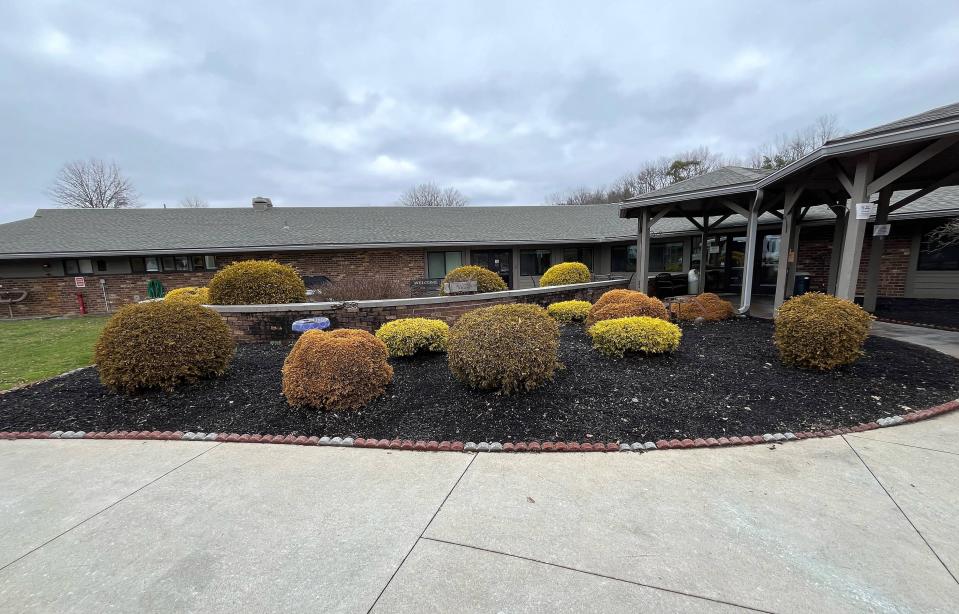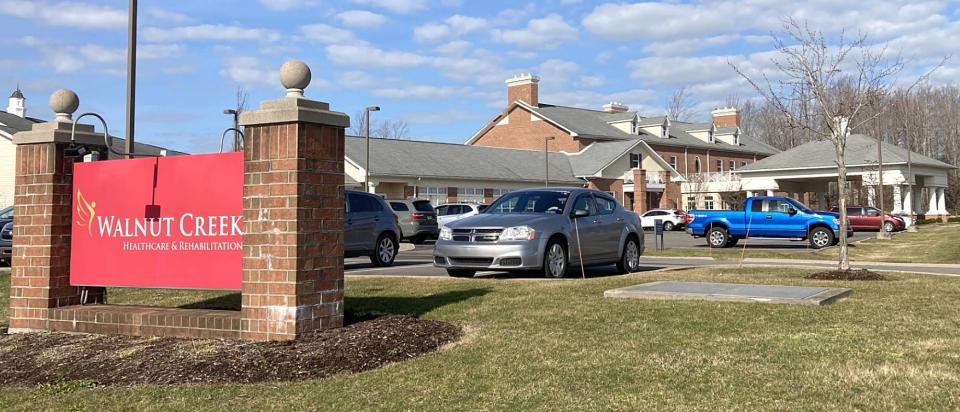Staff shortage: Lack of nurses, CNAs lead to patient problems at Erie County nursing homes
Corry Manor resident "R17" is supposed to be helped out of bed each morning to eat breakfast sitting in a chair, then placed back in bed until lunchtime, when the process is repeated.
However, the resident told a Pennsylvania Department of Health inspector on Oct. 25 that they usually remain in the chair for much of the day because there isn't enough staff to help them get back into bed.
"I usually just stay in the chair because it's time for lunch by the time they come to help me, then after lunch you have to wait until the next shift comes for help," the resident, who was not identified by name, said in a state Health Department survey. "By that time my backside hurts."

The inspector noted that the resident was interviewed at 11:45 a.m. and remained in the chair that day until 3:30 p.m.
Corry Manor is just one of many Erie County long-term care facilities that struggle to meet new state Health Department minimum staffing levels for nurses and nursing assistants. Since the minimums took effect in July, 13 of the county's 18 facilities have been cited at least once for not meeting those levels.
The Corry facility's administrator-in-training told inspectors in October that the facility often operated below the state-mandated levels for nursing hours, though it continued to accept new admissions.
HCF Management, Inc., which owns and operates Corry Manor, said in a statement that the facility is dealing with both increased demand for its services and the new regulations.
"We have always been an organization that strives to staff well-above any minimums put in place as standards to care by the state," the Lima, Ohio-based company said in the statement. "Despite our organization's investment in over 9 million dollars in our employees, overall workforce limitations continue to be at the forefront of our battle to consistently meet these needs."
What are the state's staffing levels for nurses and nursing assistants?
The staffing limits, which took effect July 1, were designed to improve patient and worker safety. The requirements include:
At least 2.87 hours of direct, daily care to each resident, an increase from 2.7 hours
A minimum of one nursing assistant for every 12 residents during the day and evening, one for every 20 residents overnight
A minimum of one licensed practical nurse for every 25 residents during the day, one for every 30 in the evening, and one for every 40 overnight
A minimum of one registered nurse for every 250 residents
More: Sarah Reed Senior Living fined $201,769 since 2021 for incidents injuring four patients
The problem, according to facility operators, is that the demand for nurses and nursing assistants exceeds the supply.
"Recruiting and retaining a skilled workforce is the primary issue for nursing homes across Pennsylvania," said Zach Shamberg, CEO of the Pennsylvania Health Care Association, a nonprofit organization that advocates for Pennsylvania's long-term care facilities and their residents. "There are not enough qualified workers to meet the growing demand for care."
LECOM Health owns and operates four of the county's 18 long-term care facilities. Two of them, LECOM at Elmwood Gardens and LECOM at Presque Isle, have not been cited for failing to meet staffing levels.
Two others, LECOM at Village Square and LECOM Senior Living Center (still listed as Millcreek Manor on the state surveys), have been cited.
"For us, finding enough licensed practical nurses is the most difficult," said Jaime Babiak, vice president of operations for the LECOM Institute for Successful Aging. "We do have a certified nursing assistant training program, where we have up to 10 students taking the course. ... But the number of LPN programs has declined. Do we need registered nurses to replace LPNs? There is no incentive to do that, the reimbursement won't go up."
Erie LPN says staffing levels declined after minimums went into effect
Lauren DeAngelis, LPN, takes care of residents at Walnut Creek Healthcare & Rehabilitation Center in Millcreek Township.
Before the state staffing regulations took effect, DeAngelis said there usually was one LPN on the overnight shift for every 20 to 25 residents. But when the regulations set the overnight minimum to one LPN for every 40 residents, DeAngelis said Walnut Creek reduced its overnight staffing.
"I'd say the changes haven't been for the better," DeAngelis said. "Why are we running at the minimum? ... In my area, we have 20 or so residents in one neighborhood and 20 or so in a completely separate neighborhood. How can I be in two places at one time?"
DeAngelis is a union member with SEIU Healthcare Pennsylvania. The union's president, Matthew Yarnell, said Walnut Creek is an exception and that most facilities in Pennsylvania have seen their staffing increase with the new regulations.
"But there are challenges across the industry," Yarnell said. "Nursing home jobs still aren't good enough, even with the wage increases for CNAs from $15 an hour to $18 an hour. We need a path to $25 an hour for CNAs and for LPNs a bump beyond that."

Walnut Creek was cited in three separate state Health Department surveys — posted in July, August and October — for failing to provide the minimum number of nurses or nursing assistants.
Officials with the facility's parent organization, Guardian Healthcare, issued a statement, though they didn't specifically address how staffing changed after the state regulations took effect.
"Unfortunately, with the economic, reimbursement, and labor challenges post-pandemic, many healthcare providers, particularly nursing homes, face staffing challenges. Walnut Creek is no different," Guardian officials said. "Upon receiving the staffing citation, Walnut Creek addressed the issues, made the necessary adjustments, worked with state and local authorities, and is now in compliance with state and federal staffing regulations."
More: Interested in housing a veteran? Erie VAMC has a program for you
Corry Manor residents reported other concerns to state inspector
While 13 county facilities have been cited for not meeting staffing minimums, Corry Manor is one of the only ones to also be cited since July for the lack of staff causing actual patient harm.
Besides the issue with R17 getting sore after remaining in a chair for much of the day, other Corry Manor residents and family members told state health inspectors that a lack of nurses and nursing assistants at the facility was affecting their care.
Another resident described being unable to get out of bed due to a lack of staff, while a family member told the investigator that they visit every day to make sure their resident is fed properly, and that care is provided appropriately.
Notes from resident council meetings in July and October that were cited in the state Health Department survey described residents concerned about not getting showers, waiting too long to have their call bells answered, trays being left in their rooms, and food being kept too long in the hallways.
"It's been a struggle for the 674 nursing homes across the state," said Shamberg, the PHCA CEO. "In the past five years, 25 nursing homes in Pennsylvania have closed. Others are going up for sale or reorganizing or going through bankruptcy. While demand increases, nursing home beds are being taken offline."
The combination of staffing minimums, the lack of nurses and nursing assistants, and an aging population that needs more nursing home beds puts these facilities and their workers in a bind.
And the staffing minimums will rise this July, when the requirements will change to at least 3.2 hours of direct, daily care to each resident. The staffing minimums for nursing assistants will increase to one for every 10 residents during the day, one for every 11 in the evening, and one for every 15 overnight.
"I'm just hoping things get better," said DeAngelis, the Walnut Creek LPN. "We want to be able to spend the time we need with each resident."
Contact David Bruce at dbruce@timesnews.com. Follow him on X @ETNBruce.
This article originally appeared on Erie Times-News: Erie County nursing homes cited for lack of nurses, nursing assistants

